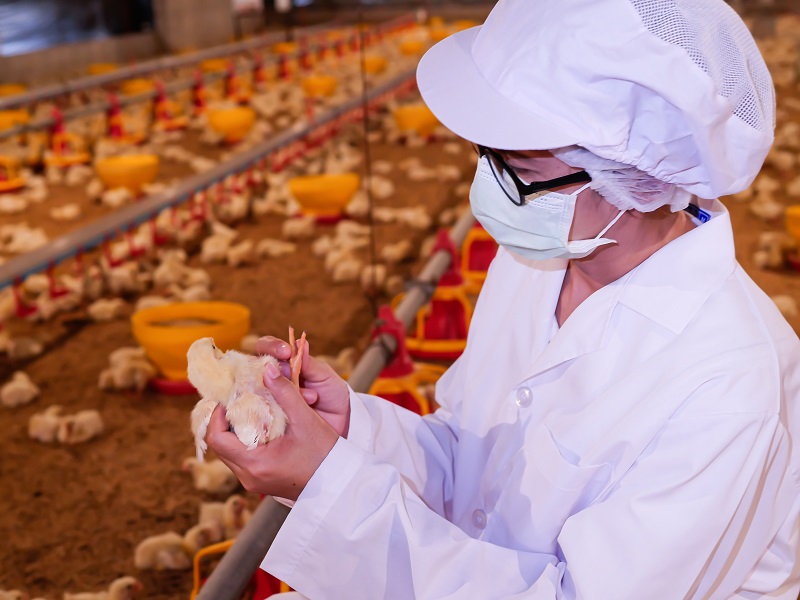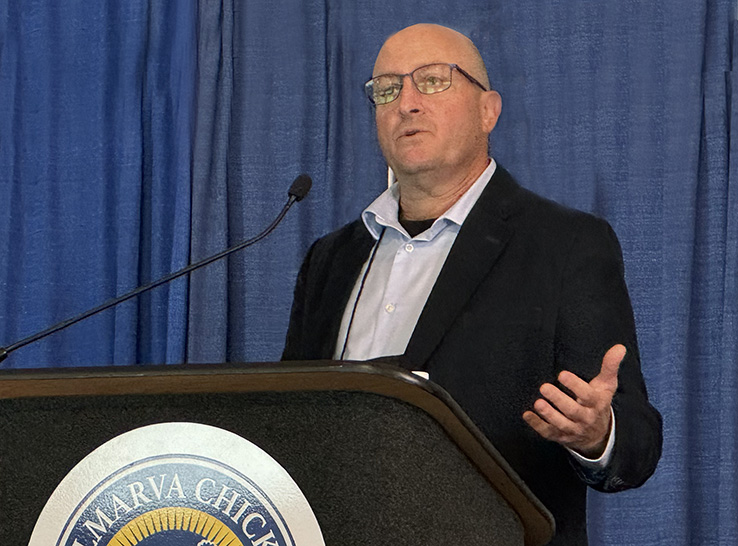By Vishal Manjunatha, PhD
Clemson University
Clemson, South Carolina
Necrotic enteritis (NE) remains one of the most significant challenges in poultry production, costing the global industry an estimated $5 billion to $6 billion annually. This disease, caused by an anaerobic bacterium, Clostridium perfringens, leads to high mortality, poor feed conversion and significant economic losses.
Traditionally, antibiotics have been the primary means of managing NE. However, rising concerns over antibiotic resistance and consumer demand for antibiotic-free poultry products have necessitated exploring alternative solutions.
During my research, I observed that the poultry industry is under growing pressure to reduce antibiotic use while maintaining animal health and productivity. This has driven researchers, including myself, to explore natural feed additives that can support poultry gut health and disease resistance.
New approaches to disease prevention
At Clemson University, my PhD thesis research, in collaboration with several experts in animal sciences and dairy microbiology, focused on identifying natural alternatives — Nigella sativa (black cumin), probiotic kefir and bacteriophages — to mitigate NE in broilers. These natural feed additives offer promising benefits in enhancing poultry health, improving gut microbiota and reducing dependency on antibiotics.
Industry experts have emphasized the challenges of maintaining bird health while adhering to antibiotic-free production standards. Many acknowledge that disease management in antibiotic-free systems remains complex and requires innovative strategies. Some producers who have tested natural feed additives have reported positive outcomes, noting improvements in flock health and reductions in disease incidence.
While speaking to a group of industry stakeholders, I explained that our goal is to develop solutions that are effective and practical for poultry producers to implement at scale. I added that we can improve poultry health without relying on antibiotics by understanding the microbial interactions in the gut and how these natural additives function.
Xiuping Jiang, PhD, my advisor and a professor in the Department of Food, Nutrition and Packaging Sciences at Clemson, emphasized the research’s significance.
“Finding effective, natural solutions to combat NE is critical for the poultry industry. Our research findings from multiple animal trials provide strong evidence that natural feed additives can enhance gut health and serve as practical alternatives to antibiotics,” Jiang said.
Breakthrough findings in poultry research
Through extensive in vivo trials and microbiological assessments, the research uncovered several significant findings:
- Nigella sativa oil at 2 to 5 mL/kg significantly reduced NE lesion scores and mortality rates without compromising growth performance.
- Crushed Nigella sativa seeds and bacteriophage treatments effectively lowered C. perfringens counts, improved gut health and eliminated NE-related mortality when used in combination.
- Kefir supplementation enhanced immune responses and microbial balance, making it a promising probiotic for poultry-disease management.
- Whole-genome sequencing of C. perfringens strains identified key microbial species and virulence genes, paving the way for targeted antimicrobial interventions.
In my research findings, I noted that the results were encouraging. We observed significant reductions in disease severity and mortality rates, suggesting that these natural alternatives could play a crucial role in antibiotic-free poultry production.
Applying these strategies in production
The transition to antibiotic-free poultry production requires practical and effective alternatives. Based on the research findings, poultry producers can adopt the strategies listed below:
- Incorporating black cumin in feed: Nigella sativa has demonstrated antimicrobial and anti-inflammatory properties, making it a viable alternative for improving poultry gut health.
- Utilizing probiotics, such as kefir: Enhancing gut microbiota through fermented products like kefir can strengthen immunity and reduce pathogenic bacteria.
- Exploring bacteriophage therapy: Targeting C. perfringens with bacteriophages can provide a precise and effective method to control NE.
- Implementing a holistic disease-management approach: A combination of these natural additives can significantly reduce disease prevalence while maintaining growth performance.
Jiang reiterated the potential impact of this research. “By combining natural ingredients such as black cumin, probiotics and bacteriophages,” she said, “we can offer producers a multi-faceted approach to disease control. This research represents a significant step toward sustainable poultry production.”
Significance for poultry industry
This research aligns with FDA regulations encouraging reduced antibiotic use in livestock while ensuring sustainable poultry production. By adopting natural feed additives, poultry producers can enhance animal welfare, meet consumer expectations for antibiotic-free products and contribute to global food safety.
At industry conferences such as the Institute of Food Technologists and the International Poultry Scientific Forum, there has been an overwhelmingly positive response to these findings. Many poultry professionals recognize that consumer awareness about antibiotic resistance and food safety is increasing. Producers who adopt these strategies will not only comply with regulations but also appeal to a more health-conscious market.
Future of poultry health
With antibiotic resistance on the rise, the need for alternative disease-management strategies in poultry production has never been more critical. Nigella sativa, kefir and bacteriophages offer effective solutions for mitigating NE while promoting sustainability in the poultry industry.
Continued research and industry adoption of these alternatives will play a crucial role in shaping the future of antibiotic-free poultry production.
If you would like additional insights on this topic, you can contact me and read the publications listed below:







